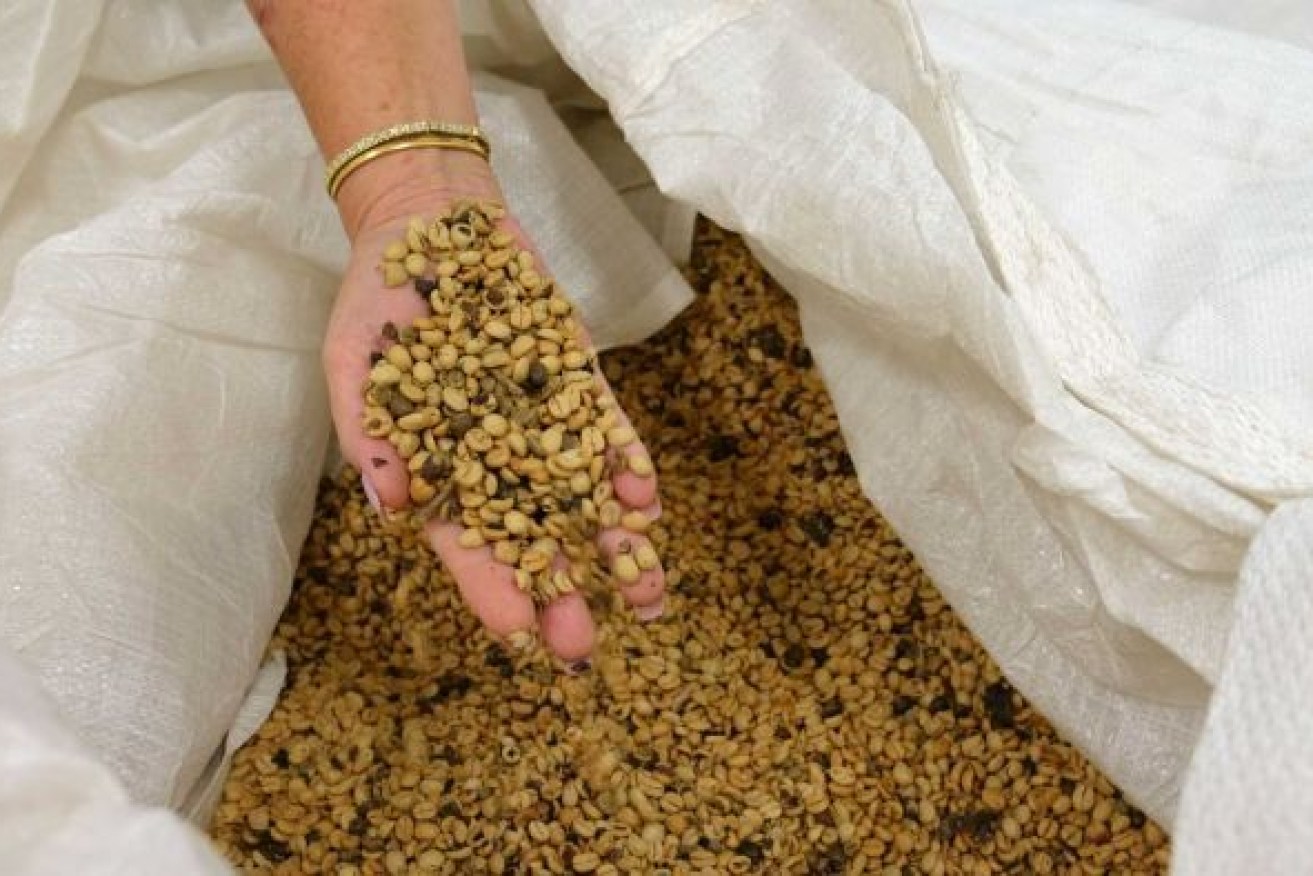Whitsunday Gold Coffee owners still full of beans despite setbacks
Businesswoman Nikki Phillips never expected to run a coffee farm but she’s keeping a legacy alive, even after a cyclone and COVID-19.

The coffee beans are harvested, processed and roasted on site. (Photo: ABC)
“My late husband, ‘Trader’ Pete from Hamilton Island, woke up one day and said ‘I’m going to grow coffee,’” Ms Phillips said.
“To which I answered, ‘knock yourself out’.”
They researched plantations, visiting coffee farms around the world and planted their first crop near Proserpine, in north Queensland 15 years ago.
While the region is well known for its sugarcane, growing coffee there was a first, but Mr Phillips learnt that with a similar climate to Hawaii, the Whitsundays would be an ideal environment to grow coffee.
“He saw the coffee process and successes in Hawaii and said, ‘why can’t I do it here?’ and that was really his catalyst,” Ms Phillips said.
An entrepreneur and businessman, Mr Phillips, known as “Trader” Pete to locals, did not let a lack of experience stop him as he diversified into agriculture.
Unfortunately, a decade ago, Pete Phillips died after battling a rare form of cancer and motor neurone disease.
“His [Pete’s] legacy is still alive — but it’s coming to fruition now,” Ms Phillips said.
Ms Phillips has worked hard to keep Pete’s dream alive, and Whitsunday Gold Coffee has transformed from just a few coffee trees into a tourism attraction along the Bruce Highway.
“The original plans were to have a tourist information centre, which we’ve now achieved, we’ve got a large restaurant, an aviary menagerie and bean-to-cup coffee harvest,” Ms Phillips said.
Along came Debbie
But upheaval kept coming for Ms Phillips when severe tropical cyclone Debbie made landfall near Airlie Beach as a category four in March, 2017.
The cyclone devastated the coffee plants and destroyed buildings on the property.
“Debbie was a catalyst,” Ms Phillips said.
“Debbie forced our hand, where she wiped the place out, and we thought ‘well, we’ve got one last go of it’.
“The coffee trees were battered and beaten, but we’ve given them some love and care and fertiliser and they seem to be blossoming.”
From destruction to expansion
Ms Phillips and her new partner, Rick Shelley, decided to rebuild and expand into a larger tourism attraction, with a cafe, bird sanctuary and children’s playground.
Ms Phillips has even made lemonade out of lemons, turning a tree felled in the cyclone into bar tops, signs and chairs displayed around the restaurant.
While the coffee was sold wholesale prior to the cyclone, this season’s harvest will only be enough to supply the cafe, but Ms Phillips has plans to expand in the future.
“We hope to get other people involved, and actually have a co-op of coffee in the future,” Ms Phillips said.
But recovery from the cyclone was not the end of their challenges, because just as the business was recovering, COVID-19 drew the business to a halt, again.
“COVID was an absolute disaster, because we were just up and running when we actually had to call a halt,” Ms Phillips said.
Ms Phillips transferred employees from her retail outlets on Hamilton Island to the coffee farm, to keep them employed during the lockdown.
“JobKeeper saved our bacon really — JobKeeper’s been a fantastic thing from the Government that we’ve been able to survive,” she said.
Bean-to-cup
The team is now wrapping up their second harvest since Cyclone Debbie hit, harvesting between 15 to 20 tonnes of beans.
The beans are skinned, dried, de-husked and roasted over a week on-site to supply the cafe.
Shelley manages the staff in the field and oversees on-farm construction.
Despite the lower yield, Shelley said they are happy with this year’s crop.
“It will produce about 5000 kilos, or five-tonne of processed coffee,” Shelley said.
“It’s good enough for Nikki to supply her outlet for 12 months.”
They are also working on building a new nursery to propagate more plants for production.
“The unfortunate thing with coffee is it takes six years from [when you] plant the tree to when you get a bean off it,” Shelley said.
“For the plants, we’ll be using our own beans and seeds, and we’re also trying grafting.”
– ABC / Melanie Groves












